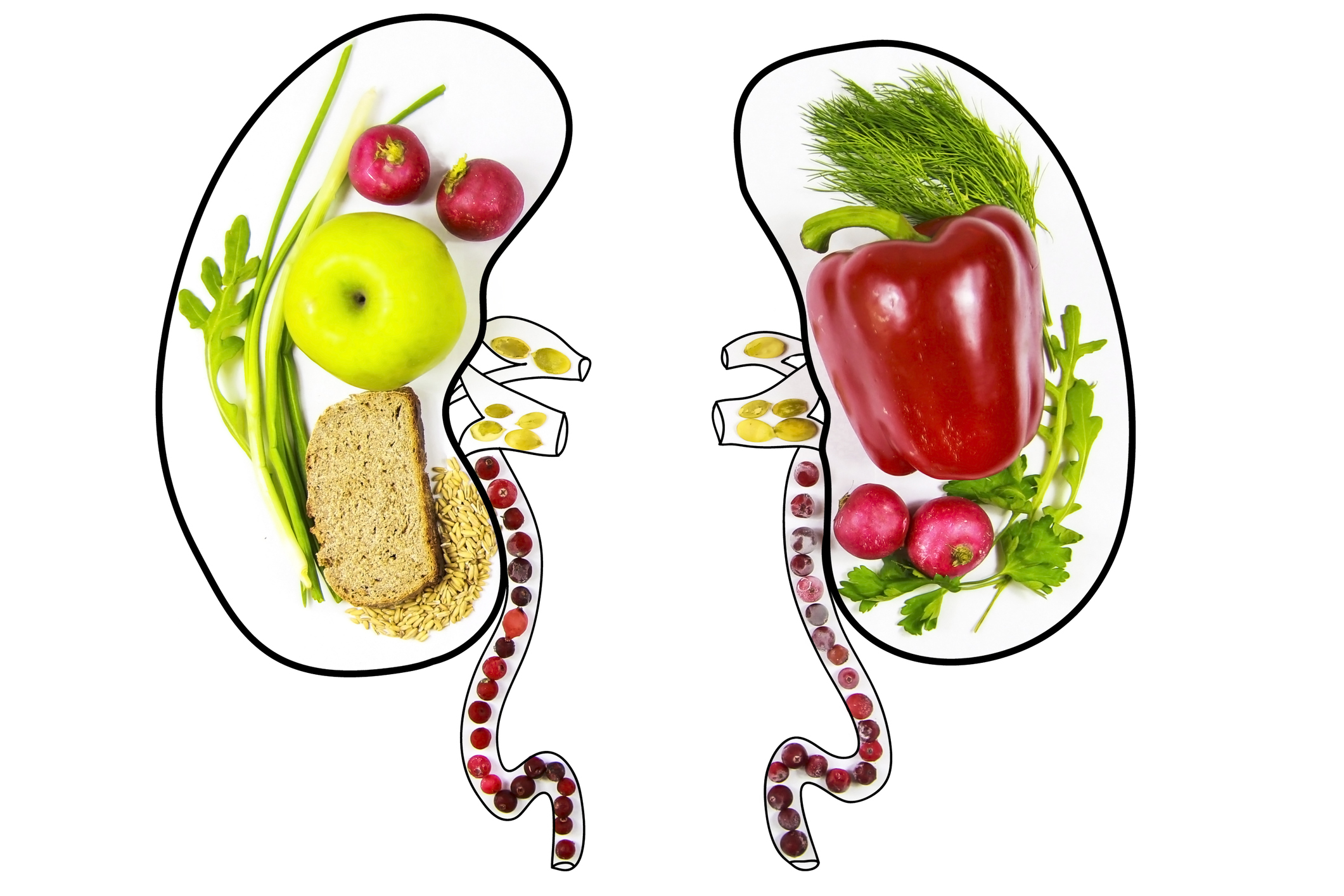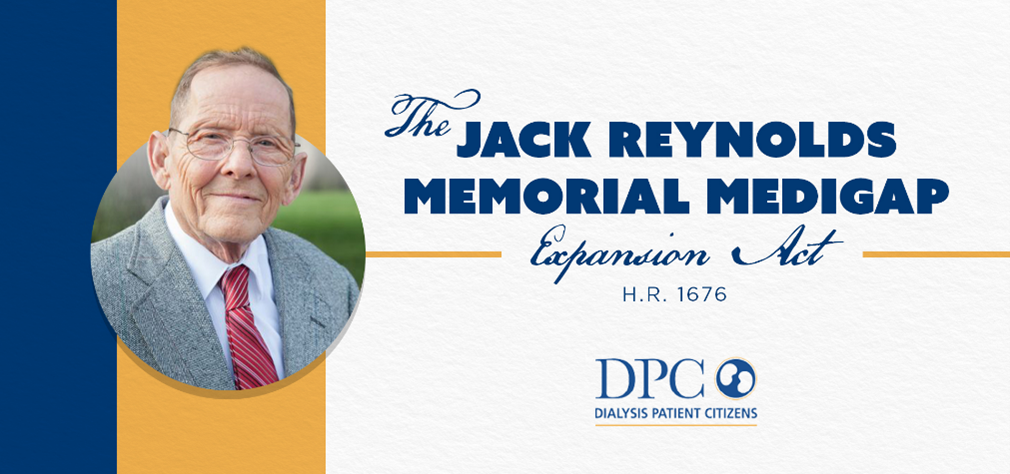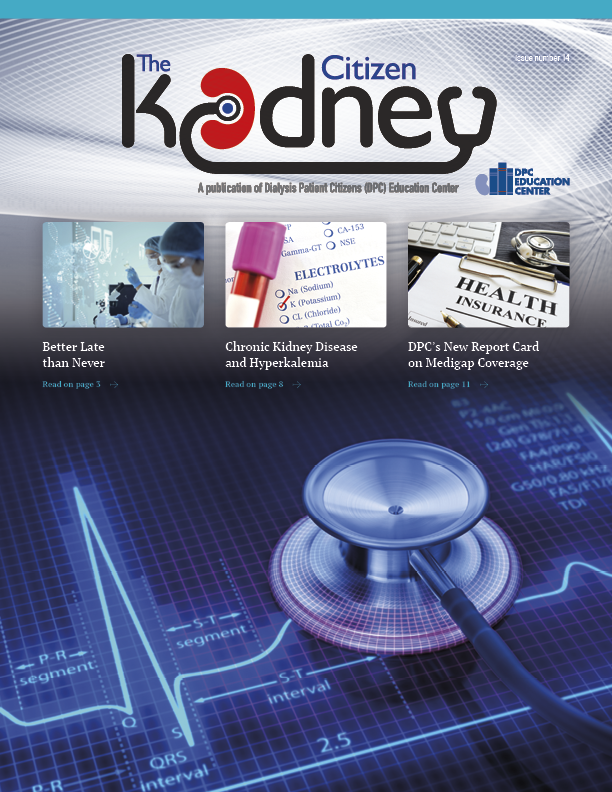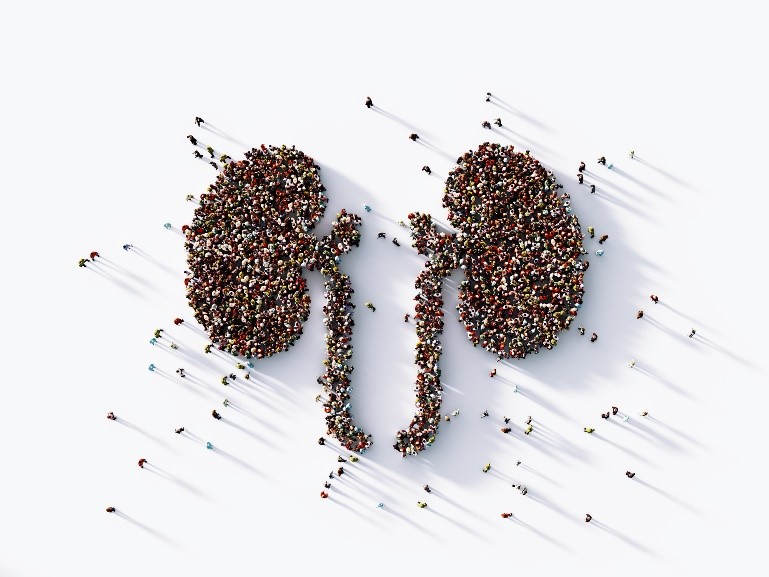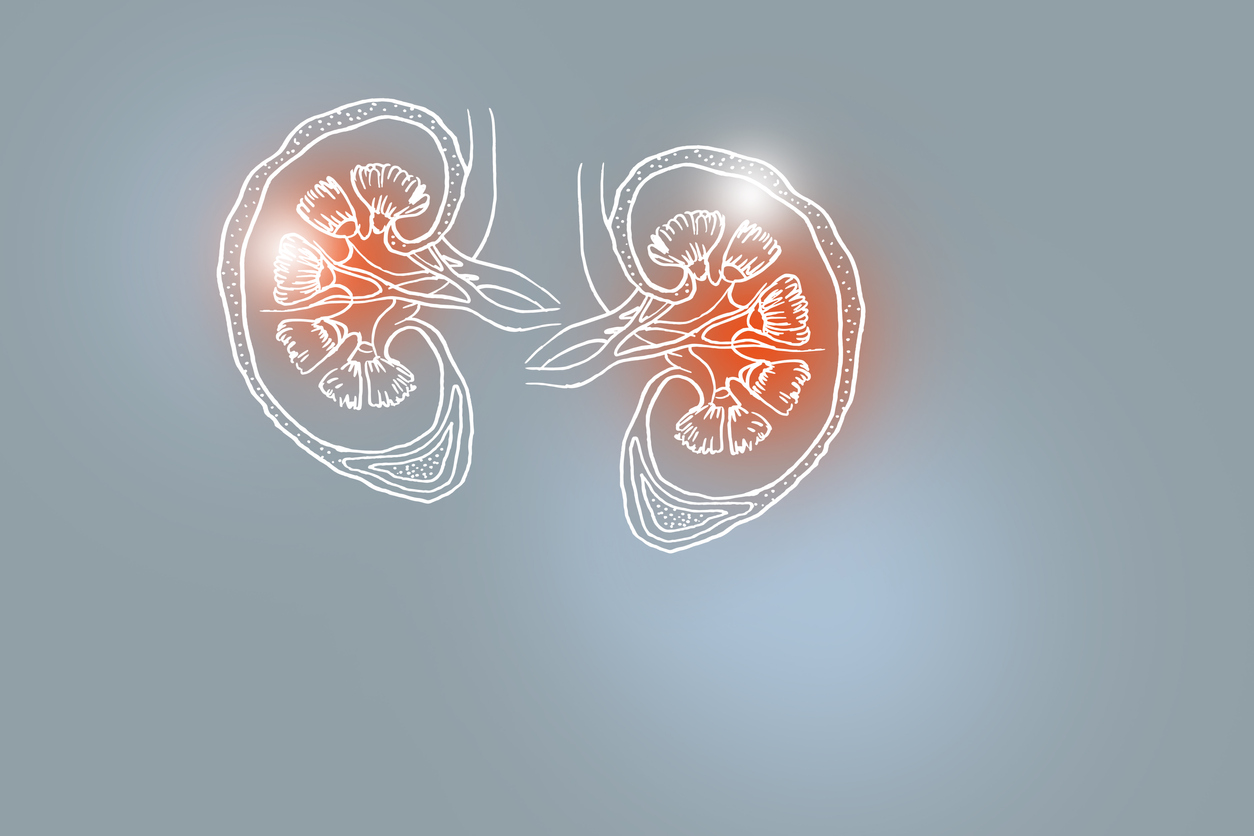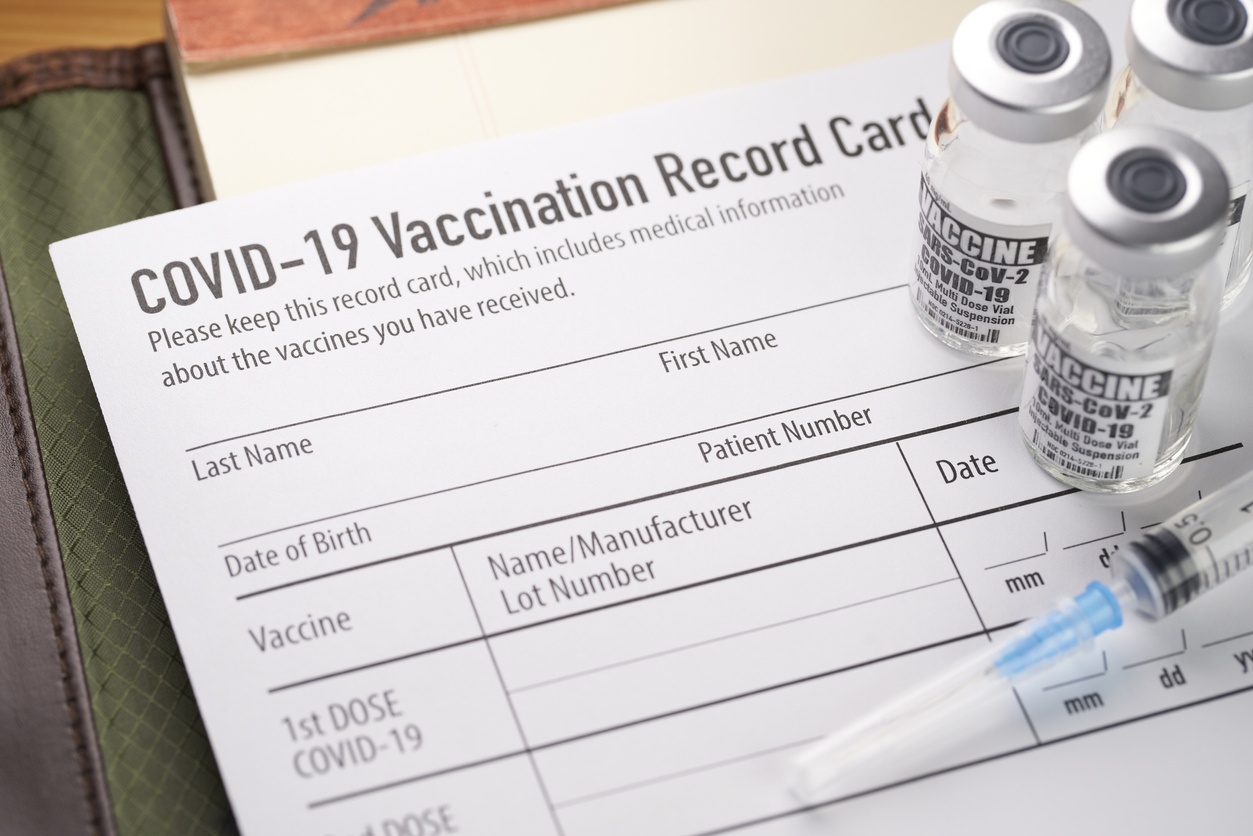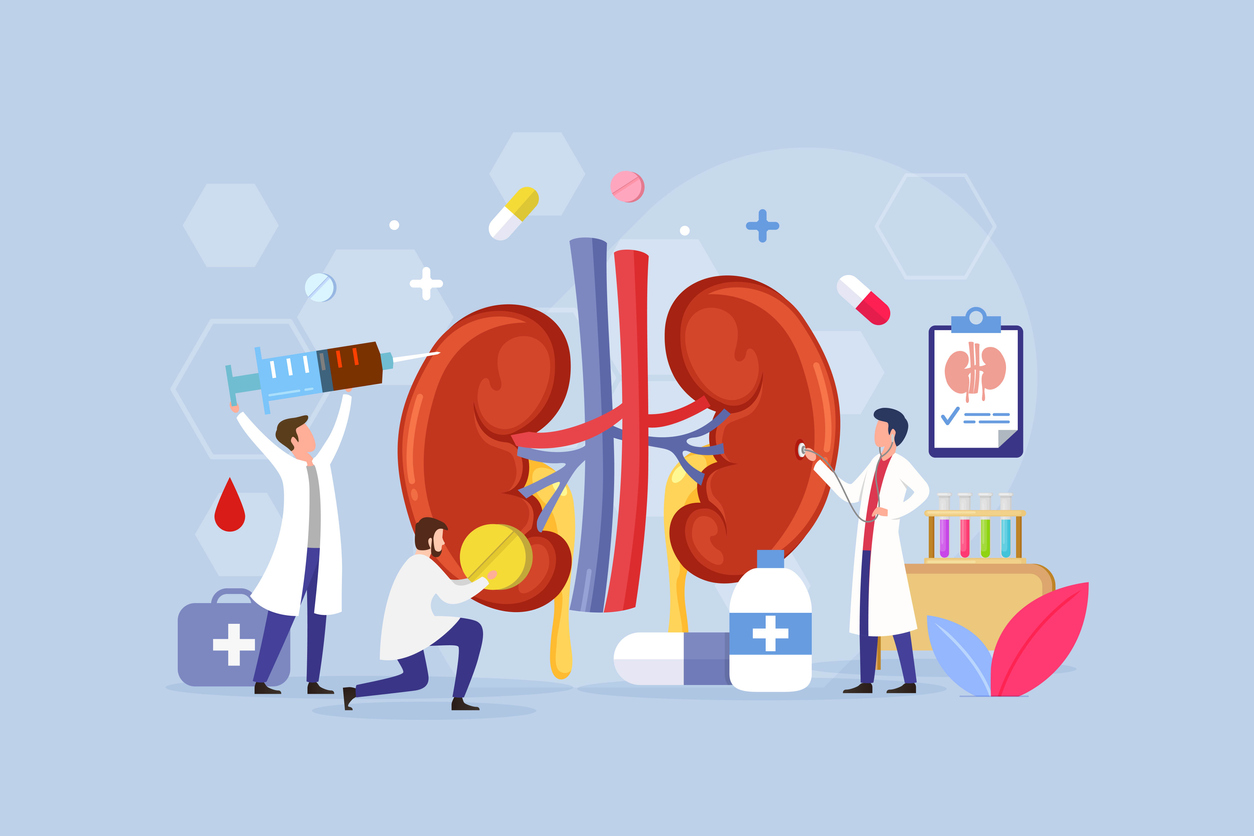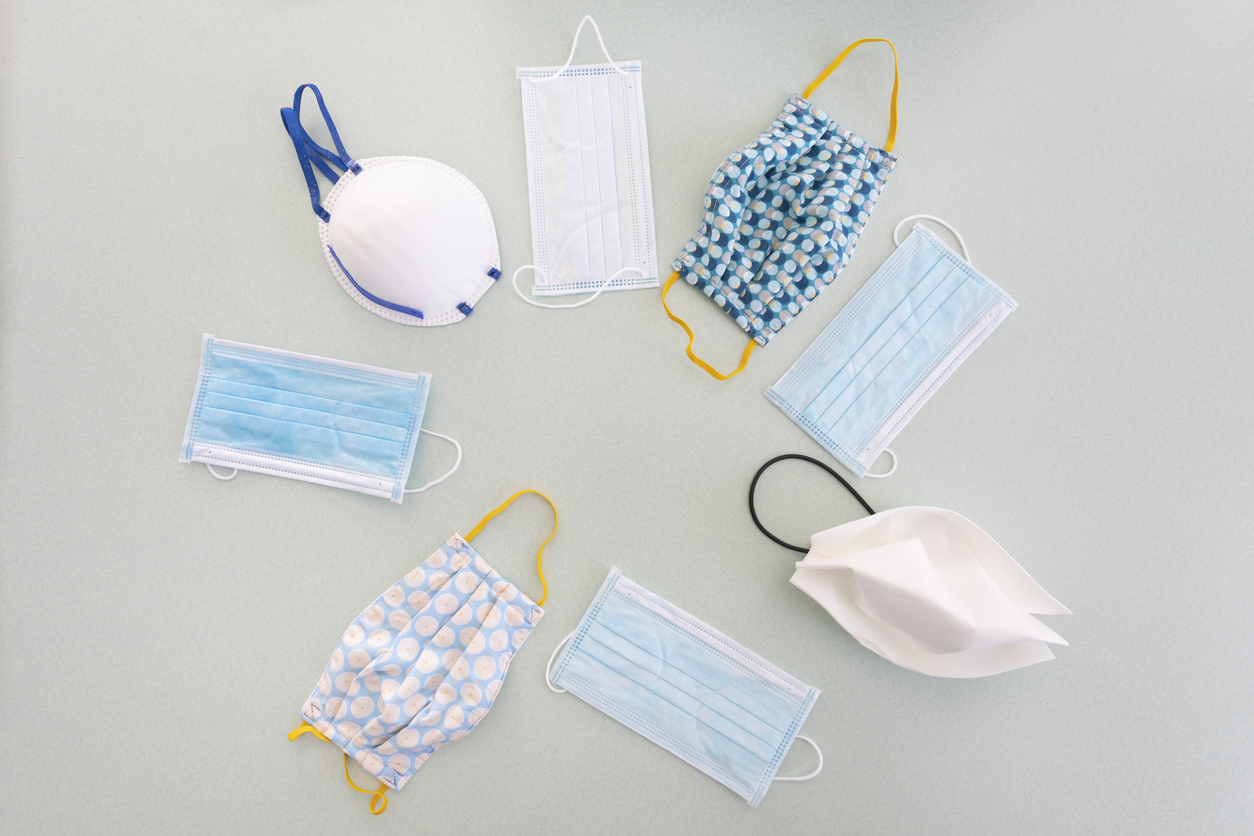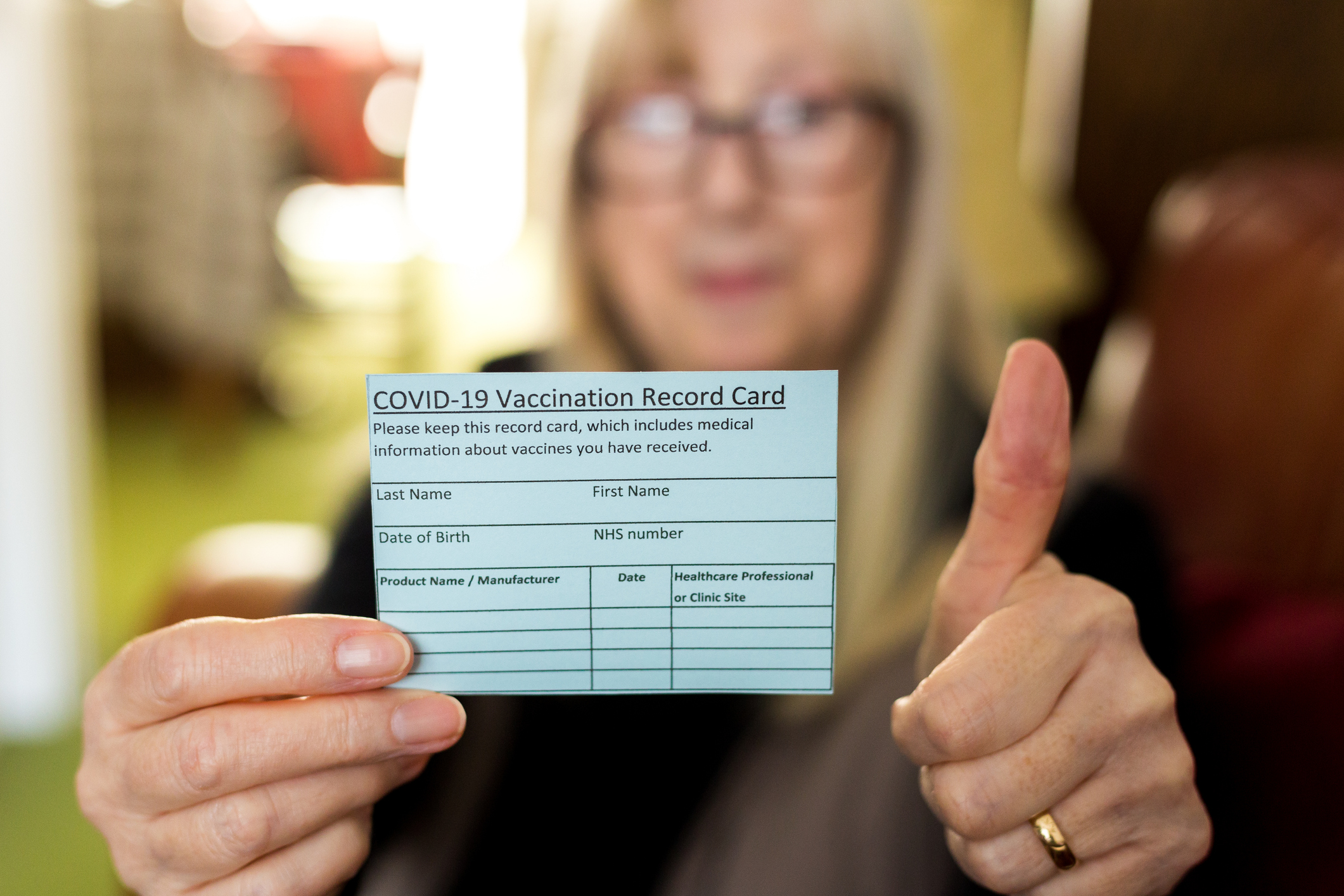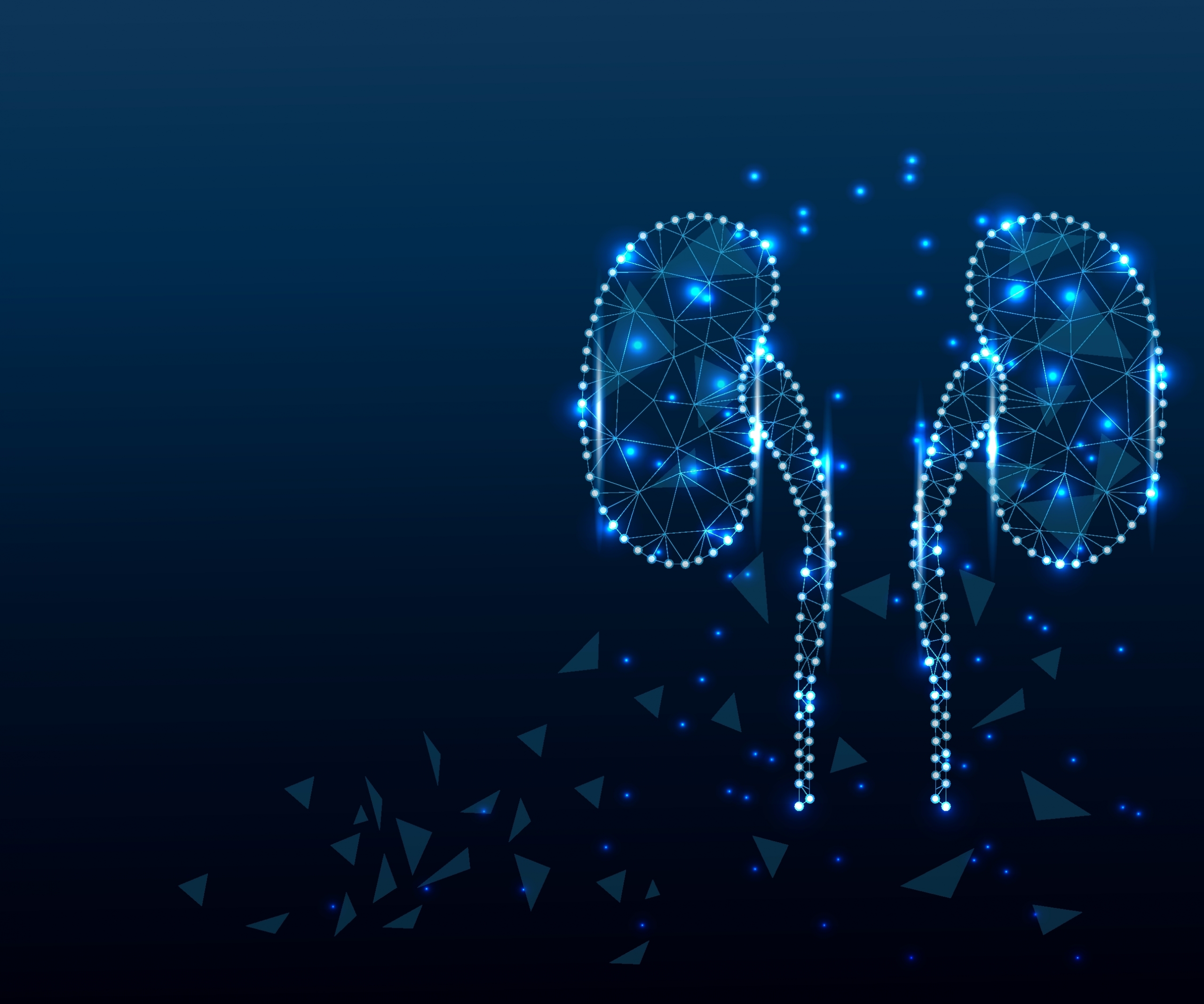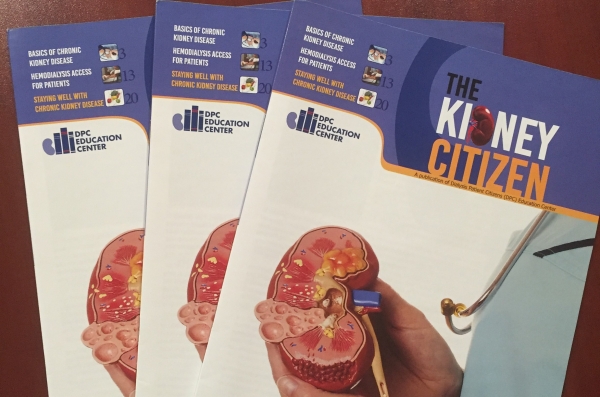News & Events
Discover new information and educational offerings that we provide. Explore our newsletters, blogs and upcoming webinars/conference calls.
Contents:
Hyperkalemia From a Dietitian’s Viewpoint
By Fanny Sung Whelan, MS, RDN Have you been diagnosed with hyperkalemia? Hyperkalemia refers to a medical condition that occurs when the potassium level in your blood gets too high [1]. “Hyper” means “over or beyond”, and “-kalemia” means “the presence of potassium in the blood.” Hyperkalemia is a common diagnosis, and luckily most people have mild cases that are well tolerated, but even mild cases need to be treated to prevent more serious cases from occurring. If left untreated and severe hyperkalemia develops, which is defined by blood potassium levels of 7 mEq/L or higher, cardiac arrest and death can occur [2]. Fortunately, there are treatment options to prevent this from happening. What causes [...]
Kidneys: Holy Grail Pursuit of Regenerative Medicine
By Anthony Atala, MD, Director, Wake Forest Institute for Regenerative Medicine Recently, two teams of scientists from the Wake Forest Institute for Regenerative Medicine (WFIRM) won first and second place in NASA's Vascular Tissue Challenge, a prize competition that aims to accelerate tissue-engineering innovations. Vascularization of engineered solid organs – like the kidney – is part of the Holy Grail pursuit of regenerative medicine. Being able to create organs with the needed blood vessel structure means the organs are supplied with needed nutrients and oxygen to survive when implanted. The two Wake Forest teams both used 3D bioprinting technology to create liver tissue constructs that were vascularized and able to mimic the human liver function [...]
H.R. 1676 – The Jack Reynolds Memorial Medigap Expansion Act
By Megan Hashbarger, Vice President of Government Relations Earlier this year, The Jack Reynolds Memorial Medigap Expansion Act (H.R. 1676) was reintroduced by Congresswoman Cynthia Axne (D-IA-03) to ensure all End Stage Renal Disease (ESRD) patients have access to Medigap. This Congress, we were very pleased she was joined by Congresswoman Jaime Herrera Beutler (R-WA-03) in leading this effort. Ensuring all ESRD patients have access to Medigap is extremely important to help patients cover the high costs of care and to improve their access to transplantation. Medigap policies are standardized, private insurance policies that cover costs not covered by Medicare, such as copayments and deductibles. Current federal law does not specify that all Medicare beneficiaries, [...]
The Kidney Citizen Issue 14
Better Late than Never: Genetic Diagnosis After Major Medical Events, Chronic Kidney Disease and Hyperkalemia, DPC's New Report Card on Medigap Coverage, and more!
Improving Equity in Dialysis Treatments and Transplants
Earlier this month the U.S. Department of Health & Human Services (HHS) announced that it is seeking comments on future rulemaking to support the President’s executive orders to advance health equity and improve health outcomes for people in need of dialysis treatment and transplants. HHS Secretary, Xavier Becerra stated, “We want to hear from diverse stakeholders, especially the patients and their families. Your feedback is essential to our work in ensuring equal access to vital resources.” HHS acknowledged that both Black and Latino individuals are more likely to have kidney failure than white individuals in the United States (almost 4 times and 1.3 times, respectively), and are less likely to be placed on the transplant [...]
Finding Your Voice – The Importance of Advocacy
Including the patient voice in healthcare is something that most people don’t have to think about. You realize how essential it is though if you are sick - something that Christina Fuhrman experienced firsthand when she got an infection. After being in the hospital for seven months, her doctor thought that the best course of treatment would be to remove her colon; however, Christina was worried about the impact on her quality of life. By doing her own research, she learned about another, possibly risky, treatment and decided to seek a second opinion when her doctor said she did not have the option for the riskier treatment. Feeling betrayed by the system put in place [...]
Understanding Depression Throughout Your Life
As people grow and change throughout the different stage of their lives, so do their signs of depression. The commonly thought of signs, such as feeling sad or hopeless, can appear in people experiencing depression in every age group, but there are additional signs to lookout for in family and loved ones. Children – some tell-tale signs in children can be a loss of interest in previously loved activities, difficulty with family members, problems at school (including socializing), and changes in diet or weight. Teenagers – teens may exhibit the same signs as children, but more unique to this age group are prolonged mood changes, lashing out, problems with friends, sleeping or eating too much, [...]
Transplant Patients Could Have a New Type of Donor in the Future
During a surgery that took place in September 2021 at NYU Langone Health in New York City, a kidney that was grown in a genetically altered pig was transplanted into a human patient. The patient, who was brain dead and who’s family consented to the surgery, had the kidney attached to the blood vessels in the upper leg outside of the abdomen. It quickly began functioning normally and the entire procedure went better than expected. Although the patient was only followed for 54 hours post-surgery and the research behind the procedure has not been peer-reviewed or published in a medical journal, the results suggest that this could lead to a new source for transplant organs. [...]
COVID-19 Vaccines for Immunocompromised People
As the COVID-19 pandemic continues, ongoing studies help inform healthcare professionals about the different immune responses and reactions among various groups within the population. Data has shown that people who are moderately to severely immunocompromised are especially vulnerable to the virus due to the inability to build the same level of immunity after vaccination as non-immunocompromised people. Small studies have also found that immunocompromised people made up a large portion of breakthrough cases requiring hospitalization, suggesting they could be more likely to transmit COVID-19 to other members of their household. Given this information, the CDC recommends that moderately to severely immunocompromised people receive an additional dose of mRNA COVID-19 vaccine at least 28 days after [...]
DPC Education Center to Become a Member of the TAQIL Leadership Coordinating Council with HSAG
In September, The DPC Education Center signed a letter of commitment to become a member of the TAQIL Leadership Coordinating Council with the Health Services Advisory Group (HSAG) which had been awarded the CMS Technical Assistance, Quality Improvement, and Learning (TAQIL) Contract. As a member of the Council, we agree to support their efforts to increase recovery of kidneys by organ procurement organizations and utilization of kidneys by transplant centers. This includes the aims of increasing deceased donor transplants and reducing kidney discard rate. The Dialysis Patient Citizens Education Center recognizes the importance of all parties working together to improve the quality of care patients receive and looks forward to being a part of this [...]
Sifting Through the Many Options for Integrative Chronic Pain Treatment
For the more than 50 million Americans who experience chronic pain every day, trying to create a treatment plan can be an exhausting battle. Due to the complex nature and differences in individuals’ pain, it is usually most effect to have an integrated or multidisciplinary treatment plan, which is the use of different methods of treatments together in order to manage/reduce pain. Although there are a wide range of integrated treatments that exist, multidisciplinary specialists are hard to come by, causing most of the research to fall onto the patient. While it is still important to work closely with your doctor and healthcare team about the best course of treatment, below are some multidisciplinary care [...]
We’re Masking Up Again, But is a Cloth Mask Good Enough?
During the start of the pandemic, when both surgical masks and N95s were in short supply, cloth masks began to make an appearance. Even when the supply of disposable masks began to improve and were more widely available to the public again, cloth masks continued to grow in popularity due to their ability to be personalized to the wearer. Like a certain sports team? You could find a mask with their logo. Want everyone to know your affinity for gardening? Wear a mask printed with different plants and flowers on it. Now that we are having to mask back up due to the Delta variant though, many people are asking, how effective are cloth masks, [...]
Understanding the New Talk Around “Booster Shots”
You may have heard the term a third dose or a booster shot for the COVID19 vaccine. To clarify, The CDC had already approved a third dose of the Pfizer-BioNTech COVID-19 vaccine or Moderna COVID-19 vaccine for people with moderately to severely compromised immune systems. This includes people who have received an organ transplant and are taking medication to suppress their immune system. Learn more about receiving a third dose at: https://www.cdc.gov/coronavirus/2019-ncov/vaccines/recommendations/immuno.html. Now, the CDC has approved a booster shot for both certain populations and for people who work in high risk work settings who have received the two-dose Pfizer-BioNTech COVID-19 vaccine. This includes : people 65 years and older and residents in long-term care settings should receive a [...]
For Dialysis Patients: Update on COVID-19, Delta Variant and Vaccination
Written by: Alan S. Kliger, M.D., Clinical Professor of Medicine, Yale School of Medicine, and Co-Chair, American Society of Nephrology (ASN) COVID-19 Response Team. COVID-19 continues to be a dangerous infection for dialysis patients. Here are some facts every patient should know: Why should I get vaccinated now if I’ve been waiting so far? The vaccines clearly protect dialysis patients, particularly by greatly reducing hospitalizations, complications and death from COVID-19 infection. If you’ve been waiting to see if the vaccine is safe, there have now been hundreds of millions of people vaccinated, with almost no severe complications from the vaccine. Did you get vaccinated for measles? Mumps? DPT? The COVID vaccines may be the safest [...]
Anxiety and Kidney Disease
By Kathy Aebel-Groesch, MSW, LCSW It will come as no surprise that anxiety has increased during the COVID-19 pandemic (not to mention the political and social climate). Even those of us who have never experienced anxiety may be finding ourselves affected. Anxiety can affect how we function in daily life--imagine yourself in a situation where you have felt extremely anxious… How did you feel physically? How clearly could you think or concentrate? How thoroughly could you have learned important information or skills? The interdisciplinary care team at the dialysis clinic is there to support you if anxiety could be affecting your ability to manage your dialysis treatment plan. How common is anxiety? 31% of adults [...]
FDA Authorizes Third Dose “Booster Shots” of Pfizer and Moderna Vaccines for Immunocompromised Individuals
On Thursday, August 12, 2021, the FDA updated the emergency-use authorization (EUA) for the Pfizer-BioNTech and Moderna Covid-19 vaccines. Americans with compromised immune systems are now eligible for a third dose, or booster shot, of these vaccines. This broadened EUA includes individuals who are kidney transplant recipients or have other diagnosed conditions that are considered to be of “equivalent level of immunocompromise.” This decision was made after a thorough review of the available data, in order to allow doctors to boost the immunity of some of their most vulnerable patients who need extra protection from COVID-19. Many transplant patients have been unable to generate antibodies after the first two doses of either vaccine, but recent [...]
One Step Closer to a Wearable Artificial Kidney
For the past 20 years, Victor Gura, MD, FASN, an associate clinical professor of medicine at the Geffen School of Medicine at UCLA, has been working on a wearable artificial kidney, or WAK. Gura has been through multiple iterations - from prototype 1.0, which weighed over 200 pounds, to prototype 2.0, which weighed 11 pounds and was tested in clinical trials in Italy, London, and Seattle, to the latest version, WAK 3.0. Weighing in at just 2 pounds and powered by a rechargeable battery, WAK 3.0 was issued patent number 10,993,183 for a combination wearable and stationary dialysis system. The description of the device given for the patent states that WAK 3.0 a hemodialysis system [...]
Here’s why the CDC recommends wearing masks indoors even if you’ve been fully vaccinated against COVID-19
By Peter Chin-Hong, University of California, San Francisco. What science supports masking after vaccination? Masks help stop the spread of the coronavirus. They’re a literal layer between you and any virus in the air and can help prevent infection. The reason public health officials are calling for more mask-wearing is that there is clear and mounting evidence that – though rare – breakthrough COVID-19 infections can occur in people who are fully vaccinated. This is particularly true with emerging variants of concern. The good news is that COVID-19 infection, if it does happen, is much less likely to lead to serious illness or death in vaccinated people. Some conditions make a breakthrough infection more likely in a vaccinated person: more virus circulating [...]
Artificial Intelligence and Kidney Health
Nephrologists know that treating their patients means addressing not only kidney health, but also including comorbidity issues such as vascular access issues, phosphorous levels, and fluid levels. Now, new artificial intelligence (AI) technologies can actually help health care providers not only manage these issues, but also help reduce the risk of recurrence. AI can assist in the analyzation and interpretation of studies and data collected on a patient in order to look at the body in a more collective way. All of this data is used to create what is called a “mathematical twin” of the patient, which allows health care providers to look at the physiological make up of their patient and run simulations [...]
Mind Over Matter – How Mindfulness Can Help Improve Both Mental and Physical Health
With a million things all going on at once in our lives – work, family, friends, school, health, news, etc., it’s hard to think about focusing on just a few things at a time, let alone just one. However, it is possible to train yourself to focus in just on what you are thinking or how you are feeling in the present moment (without judgement); this is mindfulness. While not a new concept, mindfulness has been gaining more attention in today’s society as a way to increase awareness between the mind and body and to help improve concentration. Additionally, it also comes with health benefits, such as reduced anxiety and depression, ability to help lower [...]

